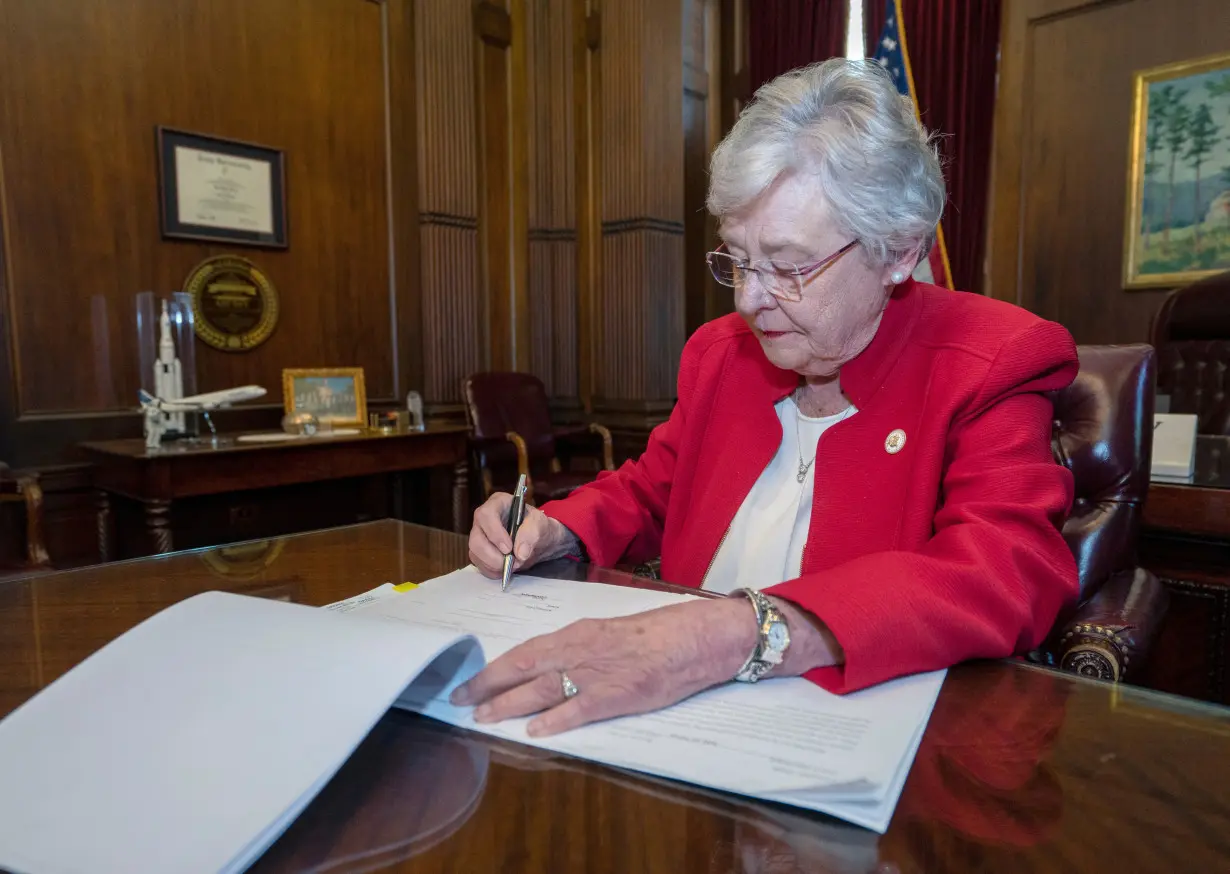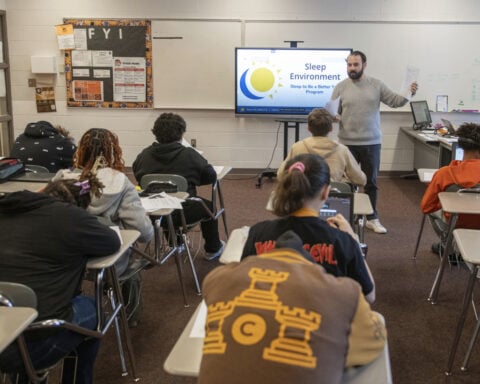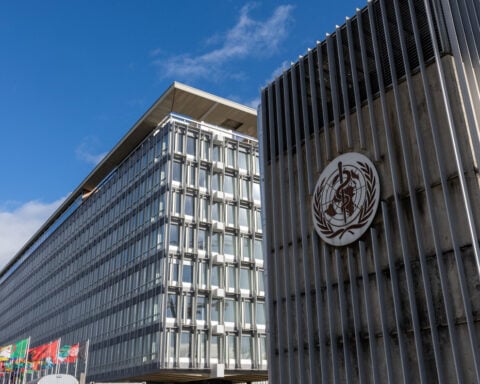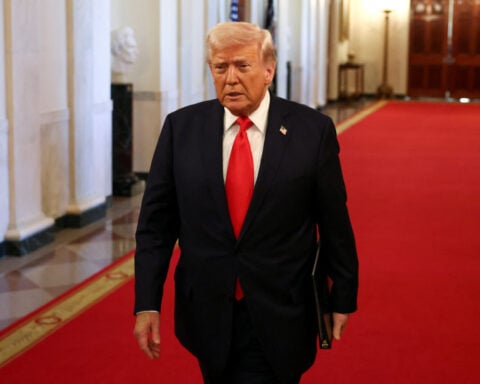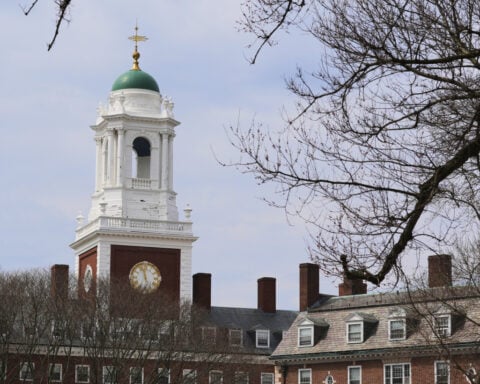By Julia Harte
(Reuters) - Two Alabama in vitro fertilization clinics are resuming treatment after the governor signed into law a measure aimed at protecting IVF in light of a state Supreme Court ruling that frozen embryos should be considered children.
In a statement on Wednesday night, Alabama Governor Kay Ivey said IVF was "a complex issue, no doubt," and anticipated there would be more work to come. "But right now, I am confident that this legislation will provide the assurances our IVF clinics need and will lead them to resume services immediately," she said.
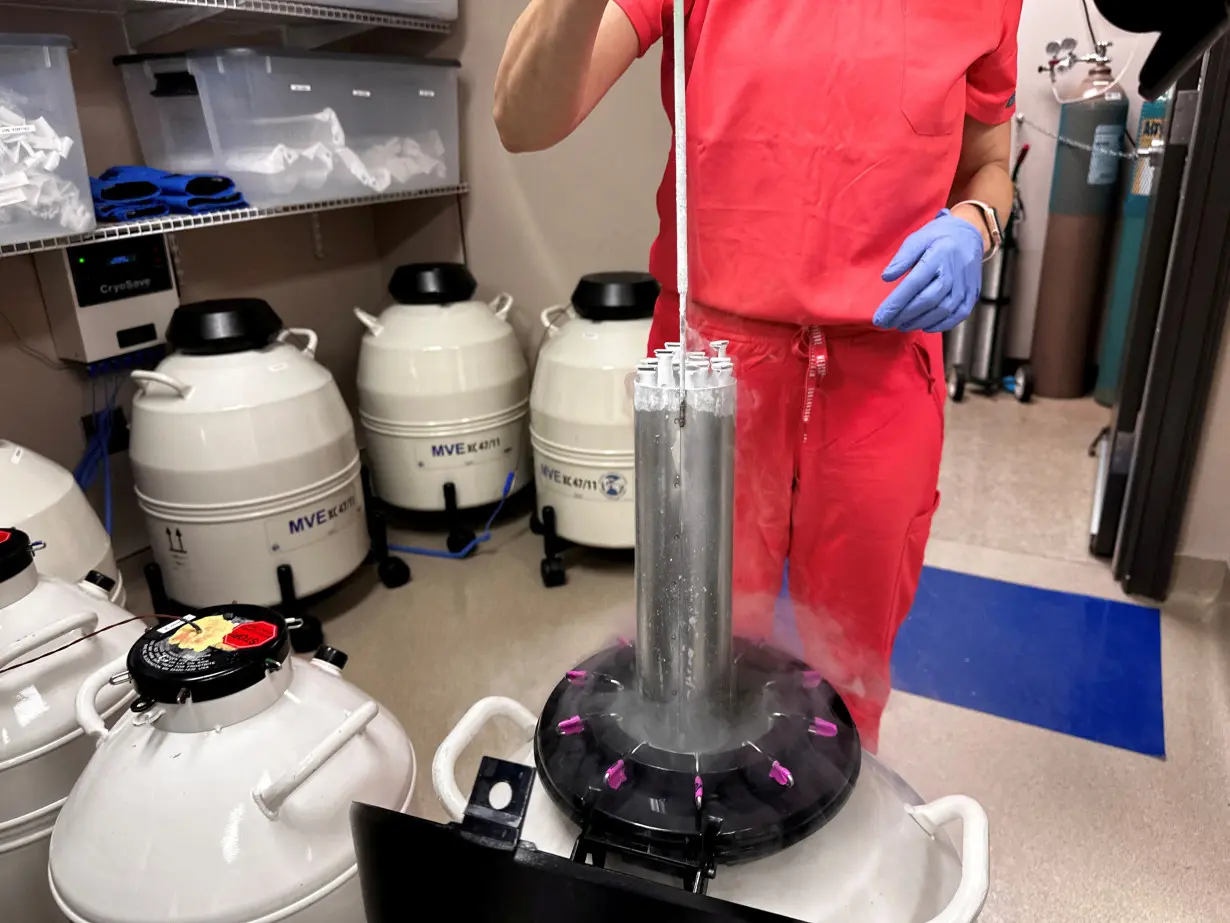
Republicans nationwide have scrambled to contain backlash from a Feb. 16 decision by the Alabama Supreme Court, whose elected judges are all Republican, that left unclear how to legally store, transport and use embryos, prompting some IVF patients to consider moving their frozen embryos out of Alabama.
Democrats have seized on the Alabama court ruling as evidence that reproductive rights are under assault.
Elizabeth Carr, who 42 years ago became the first U.S. baby born through in vitro fertilization, will attend U.S. President Joe Biden's State of the Union speech later on Thursday as a guest of Democratic Senator Tim Kaine, who co-sponsored a U.S. bill meant to protect IVF access.
Hours after Ivey signed the Alabama law, Alabama Fertility, one of the three IVF providers in the state that halted treatments after the state supreme court's ruling, announced on social media that "transfers and IVF" would restart this week. Alabama Fertility thanked the law's sponsors in the state legislature for "finding a solution in a complex issue."
The University of Alabama at Birmingham, another IVF provider that had paused procedures after the court ruling, said in a statement on Thursday that it appreciated the swift passage of “legislation that provides some protections and will therefore allow UAB to restart in vitro fertilization (IVF) treatments.”
It said it was “moving to promptly resume treatments,” but did not specify when they would restart, adding that it would continue to “assess developments.”
Both chambers of the state's Republican-controlled legislature passed the proposal protecting IVF providers from both criminal charges and civil lawsuits after brief debates on Feb. 29.
IVF involves combining eggs and sperm in a laboratory dish to create an embryo for couples having difficulty conceiving. The process typically involves the creation of multiple embryos in order to maximize the chance of a successful pregnancy, leaving some unused.
The Alabama high court issued its ruling in response to three families' lawsuits against a fertility clinic and hospital for failing to properly safeguard their frozen embryos, resulting in their destruction when a patient improperly accessed them.
The ruling was based on the state's 2018 Sanctity of Unborn Life Amendment approved by voters, which supports "the sanctity of unborn life and the rights of unborn children."
Alabama's court ruling has raised concerns that those involved in IVF could face prosecution because embryos that are found to be nonviable are sometimes disposed of or used for research.
The bill that Ivey signed would not necessarily mean IVF providers could revert to business as usual, according to its sponsor, Republican state Senator Tim Melson.
Replying to another senator's question about what Alabama IVF providers could do with unused embryos under the proposed law, Melson said during a state Senate debate on Thursday that, as a result of the court ruling some providers told him they planned to start perpetually storing embryos that aren't implanted into a uterus.
"That's going to probably become their policy," he said. "That's not in effect, but that's what they're looking at doing."
(Reporting by Julia Harte; editing by Donna Bryson and Bill Berkrot)

 Trump has begun another trade war. Here's a timeline of how we got here
Trump has begun another trade war. Here's a timeline of how we got here
 Canada's leader laments lost friendship with US in town that sheltered stranded Americans after 9/11
Canada's leader laments lost friendship with US in town that sheltered stranded Americans after 9/11
 Chinese EV giant BYD's fourth-quarter profit leaps 73%
Chinese EV giant BYD's fourth-quarter profit leaps 73%
 You're an American in another land? Prepare to talk about the why and how of Trump 2.0
You're an American in another land? Prepare to talk about the why and how of Trump 2.0
 Chalk talk: Star power, top teams and No. 5 seeds headline the women's March Madness Sweet 16
Chalk talk: Star power, top teams and No. 5 seeds headline the women's March Madness Sweet 16
 Purdue returns to Sweet 16 with 76-62 win over McNeese in March Madness
Purdue returns to Sweet 16 with 76-62 win over McNeese in March Madness
